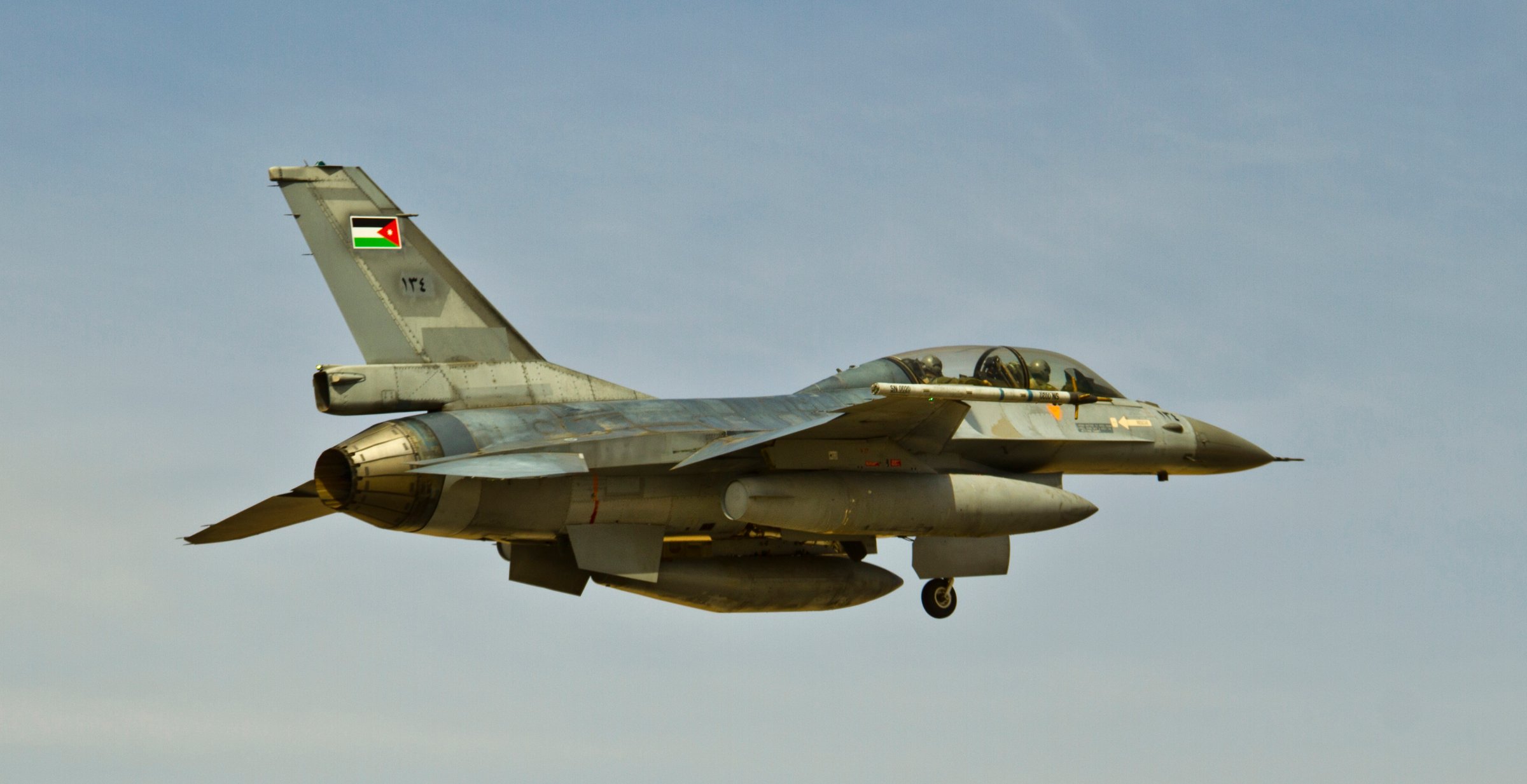
Military planners often try to wring emotions out of their war-fighting schemes. Unlike hardware and Presidential orders, they can be ephemeral and transitory.
But as Jordanian reaction to the Islamic State in Iraq and Greater Syria’s brutal murder of 1st Lt. Moaz al-Kasasbeh makes clear, sometimes such visceral reactions are tantamount to sending reinforcements into the fight.
“Revenge is a uniquely human emotion, and an enduring cause of war,” a 2005 U.S. Army paper noted. “There is a moral component to punitive attack.”
Amman pledged an “earth-shaking” response to the murder of their pilot, disclosed in a horrific video ISIS posted Tuesday. Unlike the Pentagon’s plodding, the Jordanians quickly hanged a pair of terrorists in their custody and began launching air strikes against ISIS targets on Thursday.
Jordan’s King Abdullah ordered the actions after ISIS released the video purportedly showing the jihadists burning the pilot alive in a cage. It seems to have driven Muslim anger against ISIS to new heights (although the United Arab Emirates, which had been bombing ISIS targets in Syria, suspended them after the capture of the Jordanian pilot and the alliance’s inability to rescue him).
The initial Jordanian air strikes Thursday reportedly killed 55 militants in and around ISIS’s self-declared capital in the Syrian town of Raqqa, including a senior commander known as the “Prince of Nineveh.” Up to 30 F-16s flew over the murdered F-16 pilot’s hometown as they returned from their mission (that represents nearly half of the F-16s flown by the Royal Jordanian Air Force).
“The blood of martyr Moaz al-Kasasbeh will not be in vain,” Abdullah said Wednesday. “The response of Jordan and its army after what happened to our dear son will be severe.” Ironically, the old adage of an “eye for an eye” is a part of Sharia law, the Islamic legal code embraced by ISIS.
Contrast the Jordanian reaction to the Pentagon’s. The U.S. military calls its campaign against ISIS Operation Inherent Resolve. It’s a term that suggests a bulwark rather than a bulldozer. Of course, as a superpower, the U.S. tends to be restrained in a way that Jordan doesn’t.
While publicly praising the role played by America’s regional allies in the fight against ISIS, there have been frequent U.S. murmurs that they could be doing more. After all, U.S. thinking goes, ISIS poses the biggest threat to its neighbors—and co-religionists—yet they have accounted for less than 15% of the air strikes against ISIS targets.
The pilot’s murder suggests ISIS may have gone too far this time. While the beheadings of five Westerners, including—including three Americans—by ISIS didn’t appear to trigger stepped-up attacks, Jordan responded quickly.
Major Brandon D. Newton wrote about vengeance in that paper for the Army’s School of Advanced Military Studies at Fort Leavenworth, Kan. In Punishment, Revenge, and Retribution: A Historical Analysis of Punitive Operations, he noted that violent retaliation may be required to deal with groups like ISIS. “Primitive, loosely structured actors or organizations may only respond to actual force,” he said, “not the threat or potential use of force.”
Beyond that, he added, retaliation is timeless. “Revenge is innate, vengeance is an eternal characteristic, and will not be marginalized by time or technology,” Newton concluded.
Read next: Jordan Launches New Airstrikes After Vowing ‘Harsh’ War on ISIS
Listen to the most important stories of the day.
More Must-Reads from TIME
- Cybersecurity Experts Are Sounding the Alarm on DOGE
- Meet the 2025 Women of the Year
- The Harsh Truth About Disability Inclusion
- Why Do More Young Adults Have Cancer?
- Colman Domingo Leads With Radical Love
- How to Get Better at Doing Things Alone
- Michelle Zauner Stares Down the Darkness
Contact us at letters@time.com